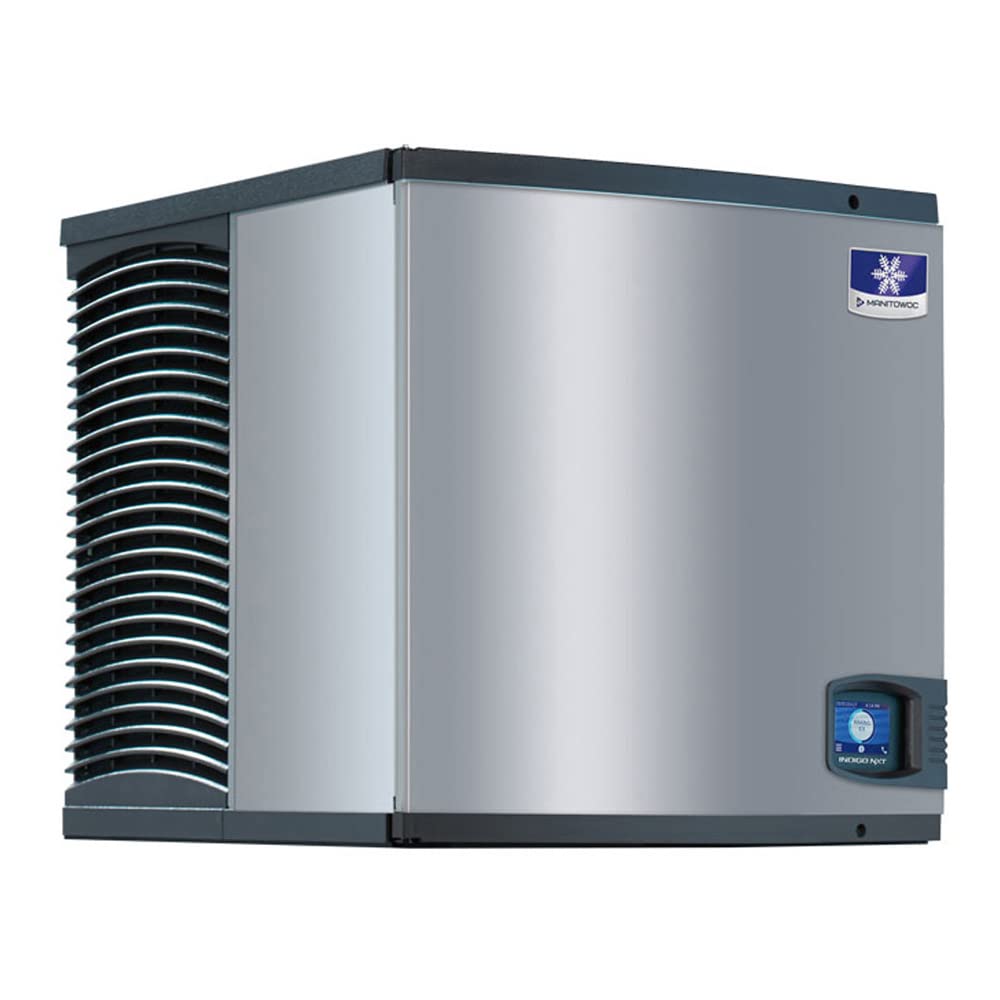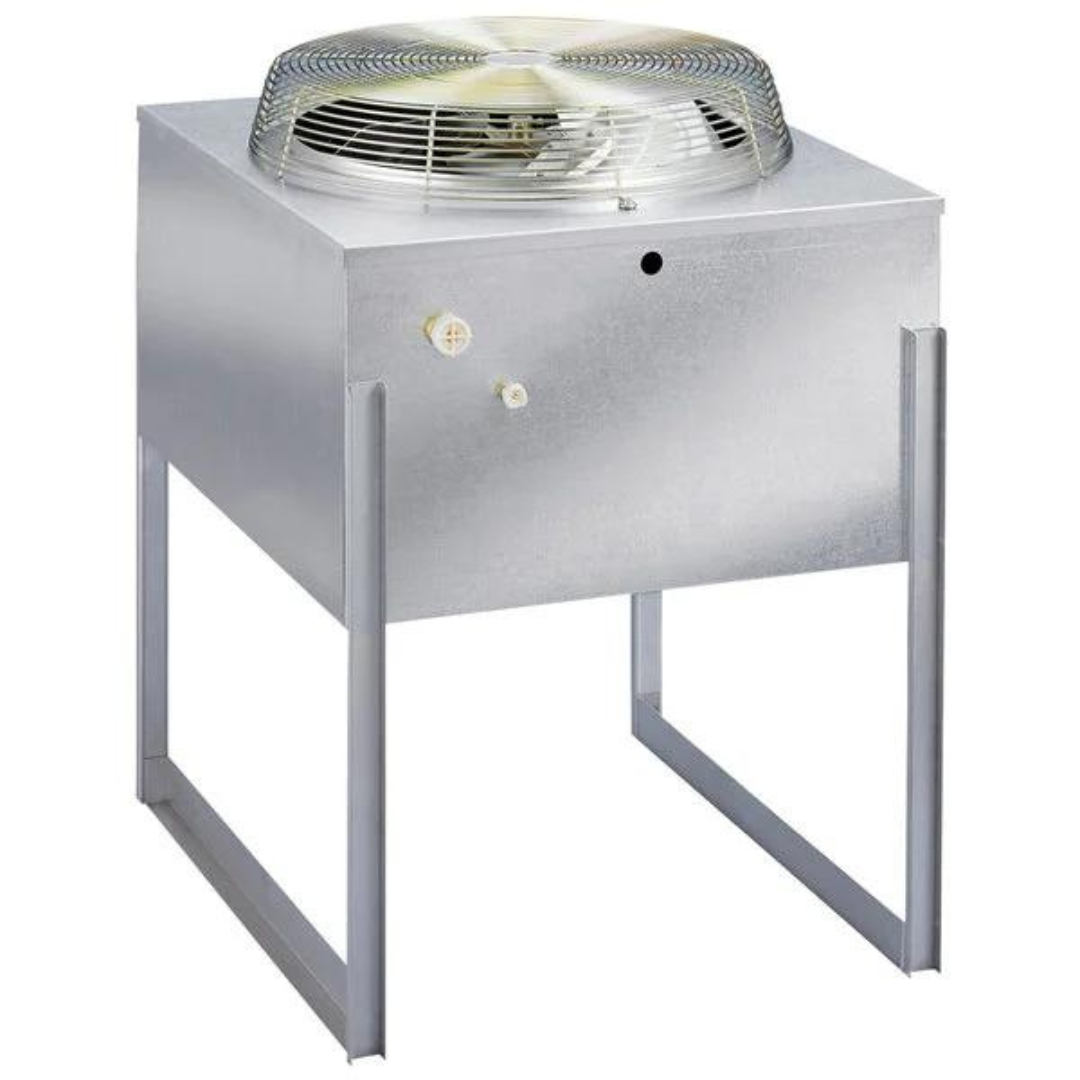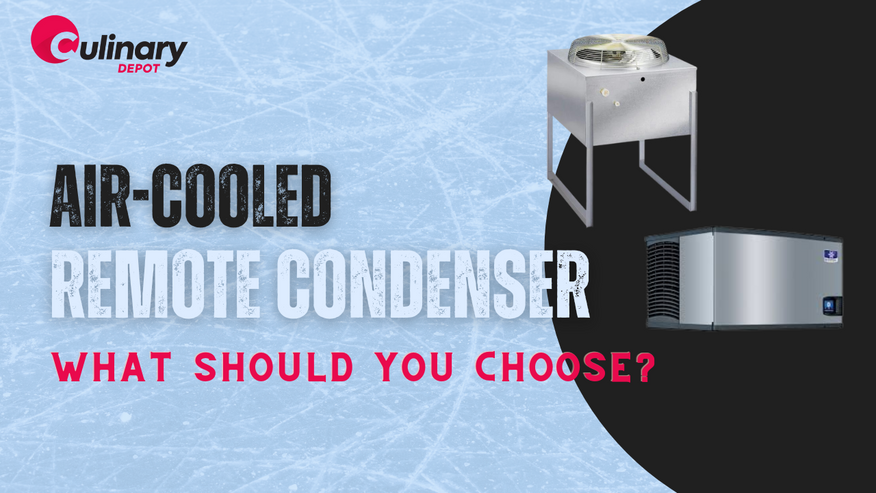Jul 28th 2023 - Team Member
Understanding Cooling Systems: Air-Cooled vs Remote Condenser
In the realm of commercial kitchen cooling, air-cooled and remote condenser systems are both prevalent choices. However, these systems are not created equal, and each comes with its own set of benefits and drawbacks. With your needs in mind, we've prepared a comprehensive comparison of air-cooled systems and remote condensers.
Air-Cooled vs Remote Condenser
This table provides a clear, concise comparison that should help in the decision-making process.
| Factors | Air-Cooled Condenser | Remote Condenser |
|---|---|---|
| Location & Setup | Typically part of the indoor unit. More common in smaller installations and residential units. Cools by dissipating heat to the ambient environment. | Located outside of the indoor unit, allowing for better heat dissipation. Common in larger commercial installations. Can be air-cooled or water-cooled. |
| Efficiency & Performance | Can be less efficient in warmer climates or high ambient temperatures. Relatively simple and cost-effective to install and maintain. | Typically more efficient as they can dissipate heat more effectively in an outdoor location. Installation can be complex due to the need for refrigerant lines running from the condenser to the indoor unit. May have higher upfront and maintenance costs. |
| Noise | Can generate more noise due to their location inside or near living or working spaces. | Often quieter from the user's perspective as they are located away from the main unit. Beneficial in environments where noise reduction is critical. |
| Space Requirement | Compact units that do not require additional space outside the unit. | Require additional space outside the unit. This can be a consideration in urban environments or areas where outdoor space is limited. |
What Is an Air-Cooled System?
Definition

An air-cooled system is an integral component of smaller installations and residential units. It cools the refrigerant in your system by blowing air over the condenser coil, effectively dissipating the heat to the ambient environment.
Manitowoc IDT0450A
Pros and Cons
Efficiency
In terms of efficiency, air-cooled systems can be a mixed bag. While they provide a simple and cost-effective solution for cooling, their performance may lag, particularly in warmer climates or high ambient temperatures.
Noise and Space

Being located inside or near living or working spaces, these systems are prone to generating more noise. However, one of their main advantages lies in their compactness—they do not require additional space outside the unit.
What Is a Remote Condenser?
Definition

Contrastingly, a remote condenser resides outside of the indoor unit. This separate location often allows for better heat dissipation, making these systems ideal for larger commercial installations.
Manitowoc JCF0500
Pros and Cons
Efficiency

From an efficiency standpoint, remote condensers often have the upper hand. Their external location enables them to dissipate heat more effectively. However, this advantage comes with a more complex installation process, which requires running refrigerant lines from the condenser to the indoor unit.
Noise and Space
Being situated away from the main unit, remote condensers tend to be quieter—an asset in environments where noise reduction is critical. But this comes with a caveat: these units necessitate additional outdoor space.
Making the Right Choice: Air-Cooled or Remote Condenser?
The decision to opt for an air-cooled system or a remote condenser system hinges on several variables. Factors to consider include the cooling capacity needed, available space, the local climate, noise considerations, and budget. Consultation with a HVAC professional can be invaluable in making the most appropriate decision for your specific circumstances.
Conclusion
Air-cooled and remote condenser systems each offer unique benefits. Your choice will ultimately depend on your specific needs, whether they are cost, space, noise, or efficiency-related. Either way, a well-informed decision will serve you well in the long run.
We hope that this comprehensive guide has provided you with a clear understanding of both systems.
Need to outfit your commercial kitchen? Visit our online store or contact us now!
Remember, when it comes to cooling systems in your commercial kitchen, knowledge is power. Stay informed, and make the right choice for your business.

